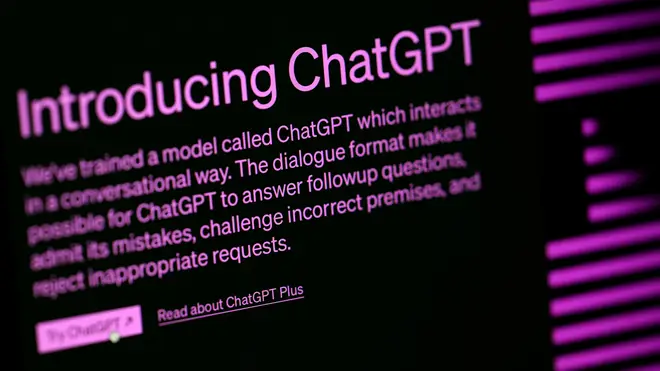
Clive Bull 1am - 4am
1 November 2023, 00:04

The UK is hosting the first AI Safety Summit to look at the possible dangers around the emerging technology.
A major summit on the safe use of artificial intelligence (AI) begins at Bletchley Park on Wednesday as the UK looks to take a global lead on the issue.
Ahead of the summit, the UK has published a range of papers on the expansion of so-called “frontier AI”, the cutting edge of the technology already being glimpsed in programmes such as generative AI apps like ChatGPT.
Prime Minister Rishi Sunak has also made a major speech on the issue, which the Government hopes will serve as a conversation starter when world leaders, tech firms and researchers meet at Bletchley.
Here is a closer look at what the UK has said it believes could be the biggest risks and opportunities around AI.

– Why is the Government talking about AI now?
The UK hopes the AI Safety Summit will be a major event in the growth and use of artificial intelligence.
But AI has had a big year already and become a much more mainstream topic too – ever since the public launch of OpenAI’s ChatGPT last November, which gave many people their first look at the powerful generative AI chatbot, capable of conversing fluently, understanding context and creating human-like content.
Since then, other tech giants have moved into the field and technology has begun to publicly develop incredibly rapidly, leading to louder calls for global discussion on the regulation of AI.
– What has the Government said about the potential risks?
In a range of papers published to start a discussion on the issue, the Government has warned that if not correctly monitored, AI could be harnessed to aid in terror and cyber attacks, build chemical or biological weapons, spread disinformation and for fraud and child sexual abuse.
It also raised concerns about the possible impact on the labour market and AI’s potential to displace human workers in some areas, although the Government also argued that in many cases AI could be used to free up human staff from repetitive tasks and new skilled jobs overseeing AI could be created.

The Government’s summary says: “Given the significant uncertainty, there is insufficient evidence to rule out that future frontier AI, if misaligned, misused or inadequately controlled, could pose an existential threat.”
It does, however, add that “many experts see this as unlikely” and, in his speech on the issue, Mr Sunak said it is “not a risk that people need to be losing sleep over right now”.
– Did the Government highlight any benefits?
Both the Government papers and Mr Sunak in his speech said they believe AI will be transformational, with the Prime Minister saying it will bring “new knowledge, new opportunities for economic growth and new advances in human capability”.
In his speech last week, Mr Sunak used the example of Moorfields Eye Hospital in London as one sign of the potential of AI, explaining how the hospital is building an AI model capable of predicting a range of health issues, including heart attacks, strokes and Parkinson’s disease.
In the Government discussion papers, the major advances made in recent years by frontier AI such as generative AI chatbots are noted and it is suggested these will continue to advance quickly, becoming increasingly useful as a result.
It suggests that in time they will become increasingly more personal to individual users and better able to help with organisational and other tasks, as well as being able to handle multiple streams of data at once and solve increasingly complex mathematical problems.
In his speech, the Prime Minister highlighted how AI is already being used to help clear paperwork and backlogs in the public sector, and how, in the private sector, AI is being used by legal firms to write contracts in minutes to save time and money.
These improvements, Mr Sunak said, mean AI could become a vital “co-pilot” for many people, including office workers, researchers and scientists, in their day-to-day life in years to come.
– So what is the Government doing about AI now?
As well as hosting the safety summit, the Prime Minister has announced the UK will establish the world’s first AI safety institute, which he said will “examine, evaluate and test new types of AI” to better understand the capabilities and risks of each new model that appears.
He also said the Government is investing £1 billion into a supercomputer that will offer the computing power needed to grow AI models, as well as investing £2.5 billion in quantum computers – another advanced form of computing.
The Prime Minister added that the Government is investing £100 million in research to use AI to help with breakthroughs and treatments for previously incurable diseases.
And at the AI Safety Summit, the Prime Minister said he will push for an international statement about the nature of AI risks, giving the first globally agreed response to the technology.